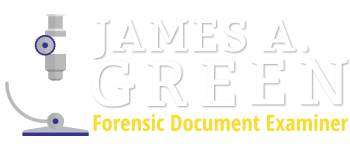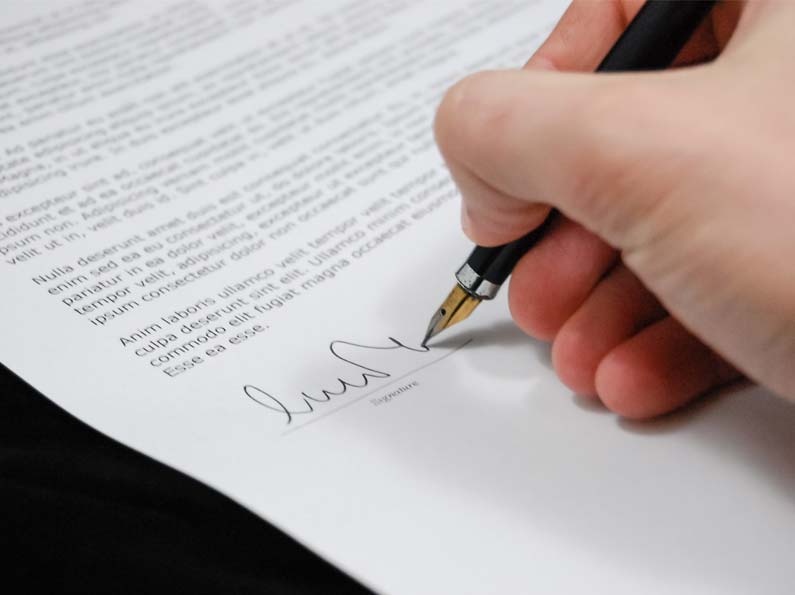A high percentage of cases submitted to a signature expert is related to contested wills or other estate related documents. Although the signature is the usual focus of the examination, other aspects of the documents may be in question. For example, a client may ask to have the questioned document processed for indented writing, to determine if a signature was written with a writing instrument or was a machine copy, conduct paper comparisons within the will, and so forth.
Signature experts prefer to have the original will (or any other questioned document), to use during an examination. Original documents may be difficult, if not impossible, to acquire for several reasons. They may be secured in a court file, in possession of the opposing party, destroyed, or unavailable for some other reason. In many cases, the client will ask the signature expert to conduct an analysis “on site”, if necessary, at a location where the document is held. If the original is not submitted for examination, a qualified opinion will likely result because a “cut and paste” fabrication usually cannot be eliminated.
If the original is not available, a clear copy should be submitted in addition to several known signature specimens of the decedent. The known samples should be dated in close proximity to the time of the signature in question. A signature expert does not have a specific number of known signature specimens required. Customarily, 15 specimens provide a good representation of the writer’s range of variation. In other cases, fewer signature samples may be adequate to resolve a signature analysis. Potential sources for specimens include checks, insurance documents, motor vehicle records, mortgage or loan applications, employee records and tax returns.
As a signature expert, I will help guide you through the process to make it as successful as possible.

